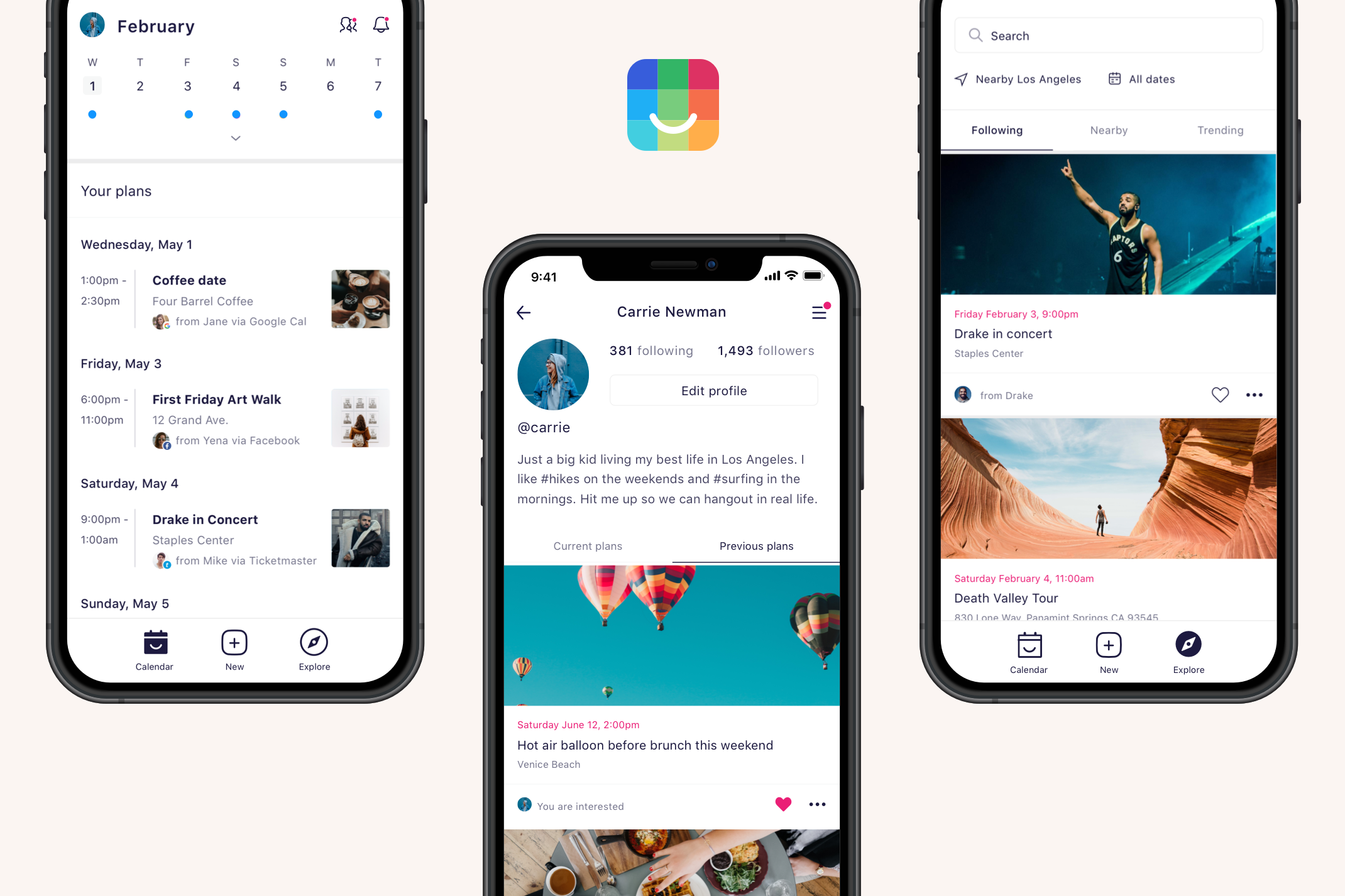Apps
Auto Added by WPeMatico
Auto Added by WPeMatico
Cleo, the London-based “digital assistant” that wants to replace your banking apps, has quietly taken venture debt from U.S.-based TriplePoint Capital, according to a regulatory filing.
The amount remains undisclosed, though I understand from sources that the figure is somewhere in the region of mid-“single-digit” millions and will bridge the gap before a larger Series B round later this year. Cleo declined to comment on the fundraising.
However, sources tell me the need to raise debt financing is partly related to Cleo Plus, the startup’s stealthy premium offering that is currently being tested and set to launch more widely soon. The new product offers Cleo users a range of perks, including rewards and an optional £100 cash advance as an alternative to using your bank’s overdraft facility. The credit facility is, for the time bring at least, being financed from the startup’s own balance sheet, hence the need for additional capital.
The new funding also relates to Cleo’s U.S. launch, which began tentatively around a year ago. This has been more successful than was expected, seeing Cleo add 650,000 active U.S. users to date. The U.S. currently makes up more than 90% of new users now, too. Overall, the fintech claims 1.3 million users have signed up to the Cleo chatbot and app, with 350,000 active in the U.K.
Accessible via Facebook Messenger and the company’s iOS app, Cleo is an AI-powered chatbot that gives you insights into your spending across multiple accounts and credit cards, broken down by transaction, category or merchant. In addition, Cleo lets you take a number of actions based on the financial data it has gleaned. This includes choosing to put money aside for a rainy day or specific goal, sending money to your Facebook Messenger contacts, donating to charity and setting spending alerts and more.
Meanwhile, alongside TriplePoint, Cleo is backed by some of the biggest VC names in the London tech scene — including Balderton Capital, Entrepreneur First, Moonfruit co-founders Wendy Tan White and Joe White, Skype founder Niklas Zennström, Wonga founder Errol Damelin, TransferWise founder Taavet Hinrikus and LocalGlobe.
Powered by WPeMatico
Fifteen months after shutting down, Shyp is getting ready to launch again. The startup tweeted today that “We are back! We’re hard at work to rebuild an unparalleled shipping experience. Before we begin operations again, we’d love to hear your feedback in this quick survey. We look forward to working with you and can’t wait to change the future of shipping!”
We are back!
We’re hard at work to rebuild an unparalleled shipping experience. Before we begin operations again, we’d love to hear your feedback in this quick survey.
We look forward to working with you and can’t wait to change the future of shipping!https://t.co/VqyxGOMrIG
— Shyp (@shyp) June 14, 2019
Most of the survey questions focus on online shopping returns, asking how easy or difficult it was to package the product for return, print the prepaid label, purchase postage or ship the product. The last question offers a hint about what direction the rebooted Shyp might take, asking “When returning a product, how likely would you be to use a service that picked up and shipped the product instead of having to ship it yourself?”
Shyp’s website doesn’t say when it will be back or what services it will offer, but it does mention that Shyp restarted in January 2019 under new management and backed by angel investors “with plans to disrupt the industry with what it does best: cutting-edge technology and a superior customer experience.”
Once one of the hottest on-demand startups, Shyp shut down in March 2018 after missing targets to expand to cities outside of San Francisco. When it first launched in 2014, Shyp initially offered on-demand service for almost anything customers wanted shipped, charging $5 plus postage to pick up, package and bring the item to a shipping company. Eventually it introduced a pricing tier in 2016 as it tried to find new approaches to its business model, before closing down two years later.
If the new Shyp does focus on making online returns easier, it will be bringing back one of its most popular services. The company expanded into online returns in 2015 after noticing that many customers used the app to return products they had purchased online.
TechCrunch has emailed Shyp for more information.
Powered by WPeMatico
The Daily Crunch is TechCrunch’s roundup of our biggest and most important stories. If you’d like to get this delivered to your inbox every day at around 9am Pacific, you can subscribe here.
1. Telegram faces DDoS attack in China… again
The popular encrypted messaging service Telegram is once again being hit with a distributed denial of service (DDoS) attack in Asia as protestors in Hong Kong take to the streets.
As they look to evade surveillance measures by government officials, Telegram is one of the tools that organizers have turned to. Four years ago, a similar attack struck the company’s service, just as China was initiating a crackdown on human rights lawyers in the country.
2. Bird confirms acquisition of Scoot
This acquisition means Bird may finally get to operate shared electric scooters in San Francisco.
3. LaLiga fined $280K for soccer app’s privacy-violating spy mode
Users of the LaLiga app were outraged to discover the smartphone software does rather more than show minute-by-minute commentary of football matches: It can use the microphone and GPS of fans’ phones to record their surroundings in a bid to identify bars that are unofficially streaming games.

Details of the Pixel 4 have been swirling around this week, so Google decided to just leak the design of its next phone via its official Twitter account, revealing the backplate and new camera module on the smartphone.
5. NFC gets a lot more powerful in iOS 13
This opens up a range of new application possibilities, Apple said, including the ability to create apps that read passports and contactless smart cards and interact with NFC-enabled hardware.
6. Facebook collected device data on 187,000 users using banned snooping app
The social media giant said in a letter to Sen. Richard Blumenthal’s office — which TechCrunch obtained — that it collected data on 31,000 users in the U.S., including 4,300 teenagers. The rest of the collected data came from users in India.
7. Uber’s annual flying taxi summit reveals Uber Air has a ways to go
We talked to Uber Director of Engineering for Energy Storage Systems Celina Mikolajczak at the company’s third annual Elevate Summit in Washington, D.C. this week. (Extra Crunch membership required.)
Powered by WPeMatico
Why is there no app where you can follow party animals, concert snobs or conference butterflies for their curated suggestions of events? That’s the next phase of social calendar app IRL that’s launching today on iOS to help you make and discuss plans with friends or discover nearby happenings to fill out your schedule.
The calendar, a historically dorky utility, seems like a strange way to start the next big social network. Many people, especially teens, either don’t use apps like Google Calendar, keep them professional or merely input plans made elsewhere. But by baking in an Explore tab of event recommendations and the option to follow curators, headliners and venues, IRL could make calendars communal like Instagram did to cameras.
“There’s Twitter for ‘follow my updates,’ there’s SoundCloud for ‘follow my music,’ but there’s no ‘follow my events’ ” IRL CEO Abe Shafi tells me of his plan to turbocharge his calendar app. “They’re arguably the best product that’s been built for organizing what you’re doing, but no one has Superhuman’d or Slack’d the calendar. Let’s build a super f*cking dope calendar!” he says with unbridled excitement. He’ll need that passion to persevere as IRL tries to steal a major use case from SMS, messaging apps and Facebook .

Finding a new opportunity for a social network has attracted a new $8 million Series A funding round for IRL led by Goodwater Capital and joined by Founders Fund and Kleiner Perkins. That builds on its $3 million seed from Founders Fund and Floodgate, whose partner Mike Maples is joining IRL’s board. The startup has also pulled in some entertainment and event CEOs as strategic investors, including Warner Bros. president Greg Silverman, Lionsgate Films president Joe Drake and ClassPass CEO Fritz Lanman to help it recruit calendar influencers users can follow.
In Shafi, investors found a consummate extrovert who can empathize with event-goers. He dropped out of Berkeley to build out his recruitment software startup getTalent before selling it to HR platform Dice, where he became VP of product. He started to become disillusioned by tech’s impact on society and almost left the industry before some time at Burning Man rekindled his fever for events.

IRL CEO Abe Shafi
Shafi teamed up with PayPal’s first board member Scott Banister and early social network founder Greg Tseng. Shafi’s first attempt Gather pissed off a ton of people with spammy invites in 2017. By 2018, he’d restarted as IRL, with a focus on building a minimalist calendar where it was easy to create events and invite friends. Evite and Facebook Events were too heavy for making less formal get-togethers with close friends. He wisely chose to geofence his app and launch state by state to maximize density so people would have more pals to plan with.
IRL is now in 14 states, with a modest 1.3 million monthly active users and 175,000 dailies, plus 3 million people on the waitlist. “Fifty percent of all teens in Texas have downloaded IRL. I wanted to focus on the central states, not Silicon Valley,” Shafi explains. Users log in with a phone number or Google, two-way sync their Google Calendar if they have one, and can then manage their existing schedule and create mini-events. The stickiest feature is the ability to group chat with everyone invited so you can hammer out plans. Even users without the app can chime in via text or email. And unlike Facebook, where your mom or boss are liable to see your RSVPs, your calendar and what you’re doing on IRL is always private unless you explicitly share it.
The problem is that most of this could be handled with SMS and a more popular calendar. That’s why IRL is doubling-down on event discovery through influencers, which you can’t do anywhere else at scale. With the new version of the app launching today, you’ll be recommended performers, locations and curators to follow. You’ll see their suggestions in the Explore tab that also includes sub-tabs of Nearby and Trending happenings. There’s also a college-specific feed for users that auth in with their school email address. Curators and event companies like TechCrunch can get their own IRL.com/… URL people can follow more easily than some janky list of events of gallery of flyers on their website. Since pretty much every promoter wants more attendees, IRL’s had little resistance to it indexing all the events from Meetup.com and whatever it can find.

IRL is concentrating on growth for now, but Shafi believes all the intent data about what people want to do could be valuable for directing people to certain restaurants, bars, theaters or festivals, though he vows that “we’re never going to sell your data to advertisers.” For now, IRL is earning money from affiliate fees when people buy tickets or make reservations. Event affiliate margins are infamously slim, but Shafi says IRL can bargain for higher fees as it gains sway over more people’s calendars.
 Unfortunately, without reams of personal data and leading artificial intelligence that Facebook owns, IRL’s in-house suggestions via the Explore tab can feel pretty haphazard. I saw lots of mediocre happy hours, crafting nights and community talks that weren’t quite the hip nightlife recommendations I was hoping for, and for now there’s no sorting by category. That’s where Shafi hopes influencers will fill in. And he’s confident that Facebook’s business model discourages it moving deeper into events. “Facebook’s revenue driver is time spent on the app. While meaningful to society, events as a feature is not a primary revenue driver so they don’t get the resources that other features on Facebook get.”
Unfortunately, without reams of personal data and leading artificial intelligence that Facebook owns, IRL’s in-house suggestions via the Explore tab can feel pretty haphazard. I saw lots of mediocre happy hours, crafting nights and community talks that weren’t quite the hip nightlife recommendations I was hoping for, and for now there’s no sorting by category. That’s where Shafi hopes influencers will fill in. And he’s confident that Facebook’s business model discourages it moving deeper into events. “Facebook’s revenue driver is time spent on the app. While meaningful to society, events as a feature is not a primary revenue driver so they don’t get the resources that other features on Facebook get.”
Yet the biggest challenge will be rearranging how people organize their lives. A lot of us are too scatterbrained, lazy or instinctive to make all our plans days or weeks ahead of time and put them on a calendar. The beauty of mobile is that we can communicate on the fly to meet up. “Solving for spontaneity isn’t our focus so far,” Shafi admits. But that’s how so much of our social lives come together.
My biggest problem isn’t finding events to fill my calendar, but knowing which friends are free now to hang out and attend one with me. There are plenty of calendar, event discovery and offline hangout apps. IRL will have to prove they deserve to be united. At least Shafi says it’s a problem worth trying to solve. “I know for a fact that the product of a calendar will outlive me.” He just wants to make it more social first.
Powered by WPeMatico
The growing presence of encrypted communications apps makes a lot of communities safer and stronger. But the possibility of physical device seizure and government coercion is growing as well, which is why every such app should have some kind of self-destruct mode to protect its user and their contacts.
End to end encryption like that you see in Signal and (if you opt into it) WhatsApp is great at preventing governments and other malicious actors from accessing your messages while they are in transit. But as with nearly all cybersecurity matters, physical access to either device or user or both changes things considerably.
For example, take this Hong Kong citizen who was forced to unlock their phone and reveal their followers and other messaging data to police. It’s one thing to do this with a court order to see if, say, a person was secretly cyberstalking someone in violation of a restraining order. It’s quite another to use as a dragnet for political dissidents.
@telegram @durov an HK citizen who runs a Telegram channel detained by the police was forced to unlock his phone and reveal his channel followers. Could you please add an option such that channel subscribers cannot be seen under extreme circumstances? Much appreciate. https://t.co/tj4UQztuZ2
— Lo Sinofobo (@tnzqo7f9) June 12, 2019
This particular protestor ran a Telegram channel that had a number of followers. But it could just as easily be a Slack room for organizing a protest, or a Facebook group, or anything else. For groups under threat from oppressive government regimes it could be a disaster if the contents or contacts from any of these were revealed to the police.
Just as you should be able to choose exactly what you say to police, you should be able to choose how much your phone can say as well. Secure messaging apps should be the vanguard of this capability.
There are already some dedicated “panic button” type apps, and Apple has thoughtfully developed an “emergency mode” (activated by hitting the power button five times quickly) that locks the phone to biometrics and will wipe it if it is not unlocked within a certain period of time. That’s effective against “Apple pickers” trying to steal a phone or during border or police stops where you don’t want to show ownership by unlocking the phone with your face.
Those are useful and we need more like them — but secure messaging apps are a special case. So what should they do?
The best-case scenario, where you have all the time in the world and internet access, isn’t really an important one. You can always delete your account and data voluntarily. What needs work is deleting your account under pressure.
The next best-case scenario is that you have perhaps a few seconds or at most a minute to delete or otherwise protect your account. Signal is very good about this: The deletion option is front and center in the options screen, and you don’t have to input any data. WhatsApp and Telegram require you to put in your phone number, which is not ideal — fail to do this correctly and your data is retained.

Signal, left, lets you get on with it. You’ll need to enter your number in WhatsApp (right) and Telegram.
Obviously it’s also important that these apps don’t let users accidentally and irreversibly delete their account. But perhaps there’s a middle road whereby you can temporarily lock it for a preset time period, after which it deletes itself if not unlocked manually. Telegram does have self-destructing accounts, but the shortest time you can delete after is a month.
What really needs improvement is emergency deletion when your phone is no longer in your control. This could be a case of device seizure by police, or perhaps being forced to unlock the phone after you have been arrested. Whatever the case, there need to be options for a user to delete their account outside the ordinary means.
Here are a couple options that could work:
Obviously these open new avenues for calamity and abuse as well, which is why they will need to be explained carefully and perhaps initially hidden in “advanced options” and the like. But overall I think we’ll be safer with them available.
Eventually these roles may be filled by dedicated apps or by the developers of the operating systems on which they run, but it makes sense for the most security-forward app class out there to be the first in the field.
Powered by WPeMatico
FlyCleaners, a New York startup offering on-demand laundry pickup and delivery, has laid off “a large number” of its employees, co-founder and CEO David Salama told TechCrunch.
This confirms a story earlier this week in Crain’s New York reporting that FlyCleaners filed a notification with the Department of Labor outlining plans to close its Long Island City plant and lay off 116 employees.
As Salama explained when we profiled him several years ago, FlyCleaners customers can use the mobile app whenever they want someone to pick up their laundry — the startup handles pickup and return, while the actual cleaning is handled by local businesses.
In an email about the layoffs, Salama told me that the company (which raised a $2 million round led by Zelkova Ventures back in 2013) created its own team for pickup and delivery because “when we started FlyCleaners six years ago, the last-mile logistics industry was simply not where we needed it to be in order to effectively service our customers.” More recently, however, the company has been testing partnerships with other logistics companies as a way to “supplement” its own team.
“Recently, it became clear to us that the cost of our internal team was just too large to bear and it was starting to hamper our ability to execute strategically and to sustain and grow our business,” Salama continued. “And so, that [led] to the painful decision to lay off a large number of employees and to proceed as a more asset-light organization.”
He added, “We don’t anticipate that this change will materially decrease the service we offer our customers. If anything, by partnering with larger-scale logistics providers, our service should be more efficient and resilient than it currently is.”
But if partners are handling pickups, delivery and the laundry, what does FlyCleaners bring to the table? When I asked what the company will focus on moving forward, Salama said, “I prefer to be discreet about it[,] but I’m comfortable saying that our plan is to leverage our technology to create the best customer experience possible.”
He also said that the startup is working with its logistics partners to find new positions for laid-off employees.
Powered by WPeMatico
Background noise on calls could be a thing of the past if Krisp has anything to do with it. The app, now available on Windows and Macs after a long beta, uses machine learning to silence the bustle of a home, shared office or coffee shop so your voice and the voices of others comes through clearly.
I first encountered Krisp in prototype form when we were visiting UC Berkeley’s Skydeck accelerator, which ended up plugging $500,000 into the startup alongside a $1.5 million round from Sierra Ventures and Shanda Group.
Like so many apps and services these days, Krisp uses machine learning. But unlike many of them, it uses the technology in a fairly straightforward, easily understandable way.
The machine learning model the company has created is trained to recognize the voice of a person talking into a microphone. By definition pretty much everything else is just noise — so the model just sort of subtracts it from the waveform, leaving your audio clean even if there’s a middle school soccer team invading the cafe where you’re running the call from.
It can also mute sound coming the other direction — that is, the noise on your friend’s side. So if they’re in a noisy street and you’re safe at home, you can apply the smart noise reduction to them as well.
Because it changes the audio signal before it gets to any apps or services, it’s compatible with pretty much everything: Skype, Messenger, Slack, whatever. You could even use it to record podcasts when there’s a leaf blower outside. A mobile version is on the way for release later this year.
It works — I’ve tested it, as have thousands of other users during the beta. But now comes the moment of truth: will anyone pay for it?
The new, official release of the app will let you mute the noise you hear on the line — that is, the noise coming from the microphones of people you talk to — for free, forever. But clearing the noise on your own line, like the baby crying next to you, after a two-week trial period, will cost you $20 per month, or $120 per year, or as low as $5 per month for group licenses. You can collect free time by referring people to the app, but eventually you’ll probably have to shell out.
Not that there’s anything wrong with that: A straightforward pay-as-you-go business model is refreshing in an age of intrusive data collection, pushy “freemium” platforms and services that lack any way to make money whatsoever.
Powered by WPeMatico
With 200X the range of Wi-Fi at 1/1000th of the cost of a cellular modem, Helium’s “LongFi” wireless network debuts today. Its transmitters can help track stolen scooters, find missing dogs via IoT collars and collect data from infrastructure sensors. The catch is that Helium’s tiny, extremely low-power, low-data transmission chips rely on connecting to P2P Helium Hotspots people can now buy for $495. Operating those hotspots earns owners a cryptocurrency token Helium promises will be valuable in the future…
The potential of a new wireless standard has allowed Helium to raise $51 million over the past few years from GV, Khosla Ventures and Marc Benioff, including a new $15 million Series C round co-led by Union Square Ventures and Multicoin Capital. That’s in part because one of Helium’s co-founders is Napster inventor Shawn Fanning. Investors are betting that he can change the tech world again, this time with a wireless protocol that like Wi-Fi and Bluetooth before it could unlock unique business opportunities.

Helium already has some big partners lined up, including Lime, which will test it for tracking its lost and stolen scooters and bikes when they’re brought indoors, obscuring other connectivity, or their battery is pulled, out deactivating GPS. “It’s an ultra low-cost version of a LoJack” Helium CEO Amir Haleem says.
InvisiLeash will partner with it to build more trackable pet collars. Agulus will pull data from irrigation valves and pumps for its agriculture tech business. Nestle will track when it’s time to refill water in its ReadyRefresh coolers at offices, and Stay Alfred will use it to track occupancy status and air quality in buildings. Haleem also imagines the tech being useful for tracking wildfires or radiation.
Haleem met Fanning playing video games in the 2000s. They teamed up with Fanning and Sproutling baby monitor (sold to Mattel) founder Chris Bruce in 2013 to start work on Helium. They foresaw a version of Tile’s trackers that could function anywhere while replacing expensive cell connections for devices that don’t need high bandwith. Helium’s 5 kilobit per second connections will compete with SigFox, another lower-power IoT protocol, though Haleem claims its more centralized infrastructure costs are prohibitive. It’s also facing off against Nodle, which piggybacks on devices’ Bluetooth hardware. Lucky for Helium, on-demand rental bikes and scooters that are perfect for its network have reached mainstream popularity just as Helium launches six years after its start.

Helium says it already pre-sold 80% of its Helium Hotspots for its first market in Austin, Texas. People connect them to their Wi-Fi and put it in their window so the devices can pull in data from Helium’s IoT sensors over its open-source LongFi protocol. The hotspots then encrypt and send the data to the company’s cloud that clients can plug into to track and collect info from their devices. The Helium Hotspots only require as much energy as a 12-watt LED light bulb to run, but that $495 price tag is steep. The lack of a concrete return on investment could deter later adopters from buying the expensive device.
Only 150-200 hotspots are necessary to blanket a city in connectivity, Haleem tells me. But because they need to be distributed across the landscape, so a client can’t just fill their warehouse with the hotspots, and the upfront price is expensive for individuals, Helium might need to sign up some retail chains as partners for deployment. As Haleem admits, “The hard part is the education.” Making hotspot buyers understand the potential (and risks) while demonstrating the opportunities for clients will require a ton of outreach and slick marketing.
Without enough Helium Hotspots, the Helium network won’t function. That means this startup will have to simultaneously win at telecom technology, enterprise sales and cryptocurrency for the network to pan out. As if one of those wasn’t hard enough.
Powered by WPeMatico
What does a gaming company do after raising $1.25 billion? Acquisitions seem like a pretty good place to start. Epic Games — of Unreal Engine and the ridiculously successful Fortnite phenomenon — has just picked up Houseparty.
The social video app announced the news via blog post this morning. The deal seems like a natural fit for Epic. Social has been an integral piece of Fortnite’s success as a multiplayer battle royale title.
Founded in 2015, Houseparty is a social network that delivers video chat across a number of different platforms, including iOS, Android and macOS. Like Fortnite, the offering tends to skew younger. Specifically, the app caters toward teen users, providing a more private and safer space than other, broader platforms.
“Houseparty brings people together, creating positive social interactions in real time,” Epic CEO Tim Sweeney said in a post announcing the news. “By teaming up, we can build even more fun, shared experiences than what could be achieved alone.”
For Houseparty, the acquisition appears to mean the app will continue to operate relatively unchanged for the time being. In an FAQ, the company noted that the app is largely staying the same as of today. Things like friendships and streaks will remain untouched by the company, and Epic and Houseparty accounts will stay separate. How such integration looks going forward remains to be seen, of course.
“Joining Epic is a great step forward in achieving our mission of bringing empathy to online communication,” Houseparty co-founder and CEO Sima Sistani said of the news. “We have a common vision to make human interaction easier and more enjoyable, and always with respect for user privacy.”
With some massive investments on its side, it seems more acquisitions are likely in the cards for the gaming company. In January it purchased Serbia-based computer design startup 3Lateral.
Powered by WPeMatico
WhatsApp has so far relied on past dealings with bad players within its platform to ramp up its efforts to curtail spam and other automated behavior. The Facebook -owned giant has now announced an additional step it plans to take beginning later this year to improve the health of its messaging service: going after those whose mischievous activities can’t be traced within its platform.
The messaging platform, used by more than 1.5 billion users, confirmed on Tuesday that starting December 7 it will start considering signals off its platform to pursue legal actions against those who are abusing its system. The company will also go after individuals who — or firms that — falsely claim to have found ways to cause havoc on the service.
The move comes as WhatsApp grapples with challenges such as spam behavior to push agendas or spread false information on its messaging service in some markets. “This serves as notice that we will take legal action against companies for which we only have off-platform evidence of abuse if that abuse continues beyond December 7, 2019, or if those companies are linked to on-platform evidence of abuse before that date,” it said in an FAQ post on its site.
A WhatsApp spokesperson confirmed the change to TechCrunch, adding, “WhatsApp was designed for private messaging, so we’ve taken action globally to prevent bulk messaging and enforce limits on how WhatsApp accounts that misuse WhatsApp can be used. We’ve also stepped up our ability to identify abuse, which helps us ban 2 million accounts globally per month.”
Earlier this year, WhatsApp said (PDF) it had built a machine learning system to detect and weed out users who engage in inappropriate behavior, such as sending bulk messages or creating multiple accounts with intention to harm the service. The platform said it was able to assess the past dealings with problematic behaviors to ban 20% of bad accounts at the time of registration itself.
But the platform is still grappling to contain abusive behavior, a Reuters report claimed last month. The news agency reported about tools that were readily being sold in India for less than $15 that claimed to bypass some of the restrictions that WhatsApp introduced in recent months.
TechCrunch understands that with today’s changes, WhatsApp is going after those same set of bad players. It has already started to send cease and desist letters to marketing companies that claim to abuse WhatsApp in recent months, a person familiar with the matter said.
Powered by WPeMatico